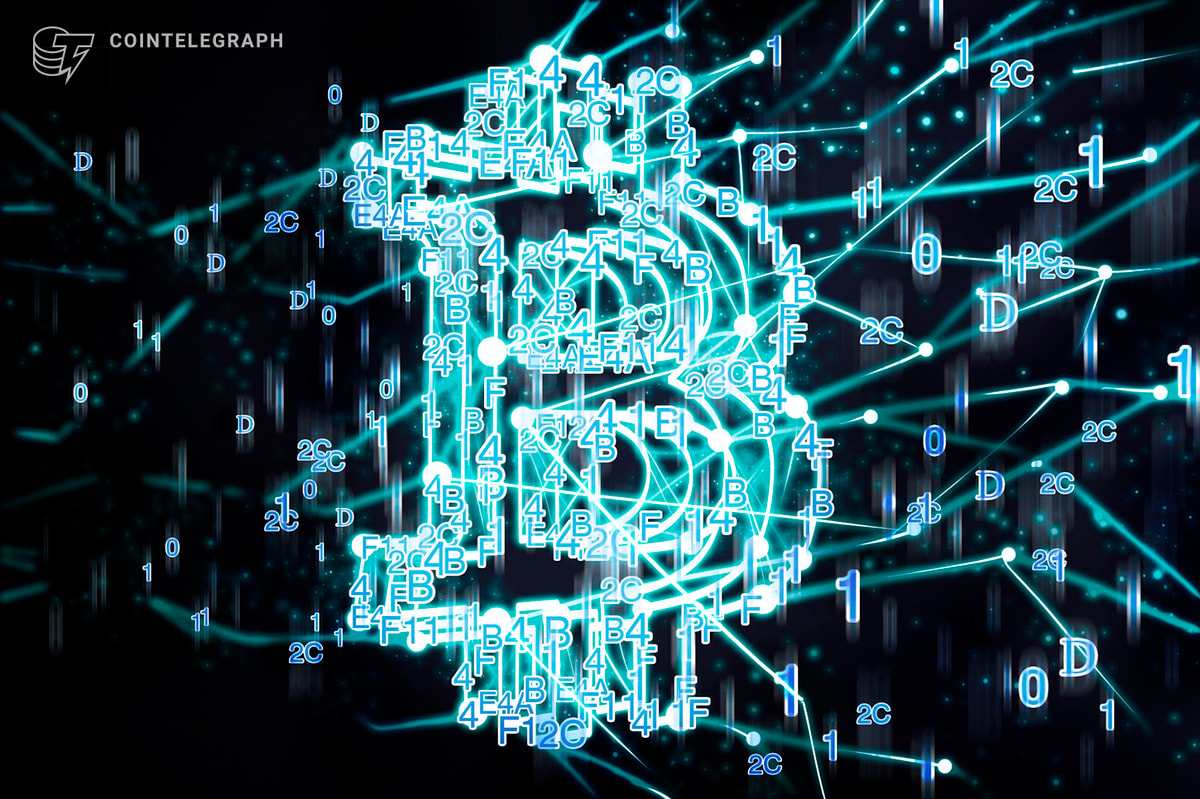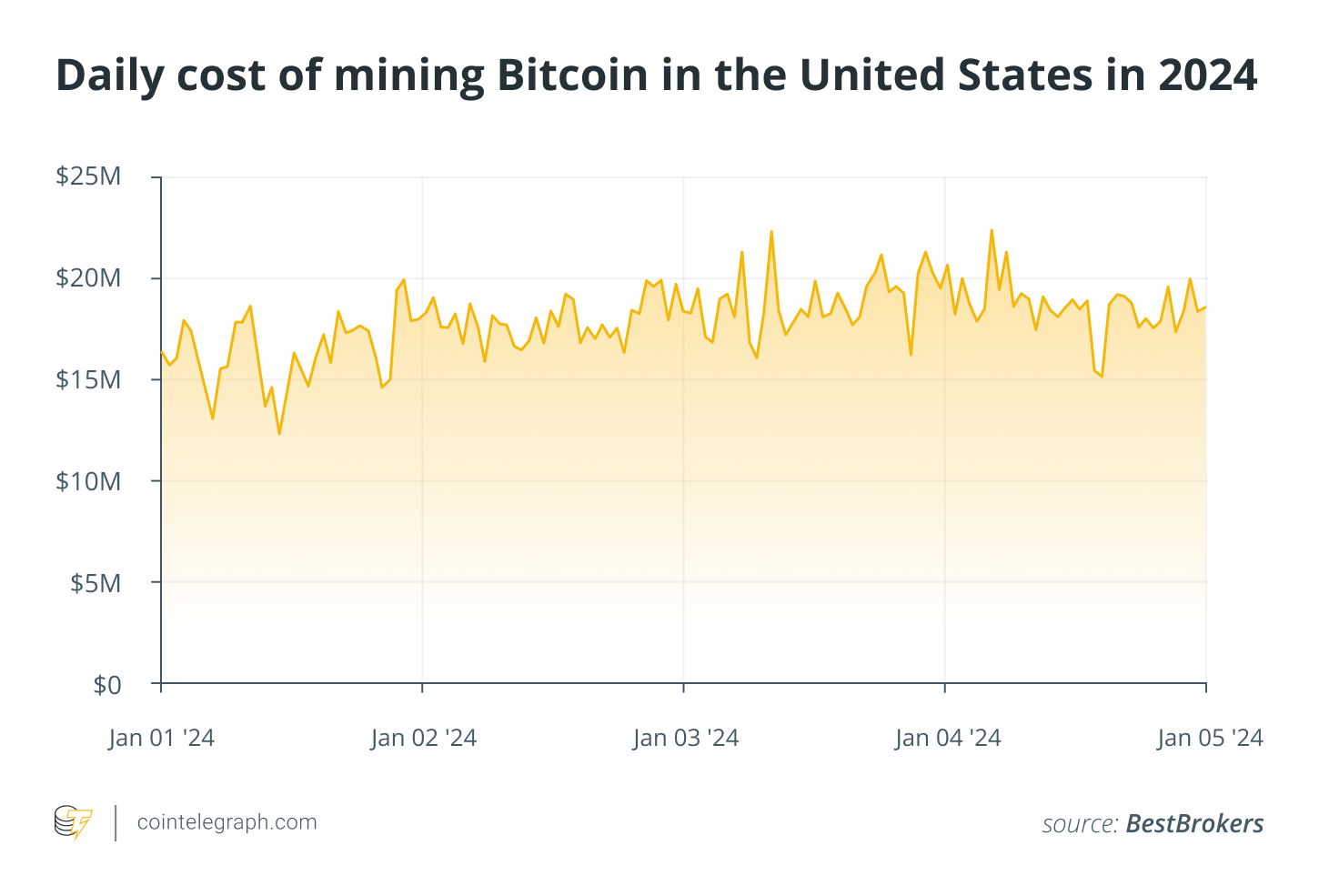Fiat currencies and cryptocurrencies share similar use cases, but they both come together.

Fiat currencies and cryptocurrencies share similar use cases, but both have drawbacks that critics say make their use unethical.
Common arguments for why Bitcoin (BTC) is unethical include its environmental impact due to high electricity costs resulting from mining, as well as its potential use by criminal elements and lack of regulation and user protection.
On the contrary, critics of paper money consider it immoral, because it is not backed by a physical commodity such as gold. This means there is no limit to what central banks can print, leading to serious social damage.
Speaking to Cointelegraph, Charles Adams of UK hedge fund manager Nickel Digital Asset Management said he believes both currencies have ethical considerations, but overall Bitcoin is ethically stronger due to its inclusion, its inherent transparency and immutability:
“Bitcoin’s blockchain technology provides a decentralized public ledger where all transactions are recorded and anyone can verify them.”
“Furthermore, it is difficult to forget that paper money is also frequently used for money laundering and other crimes. In fact, cash remains the currency of choice for most illicit activities.
Cybersecurity research firm Cybersecurity Ventures estimates that losses from cybercrime through the traditional financing system globally will reach $10.5 trillion per year by 2025. Cybercrimes are often untraceable and victims rarely recover their money.
In contrast, Adams says that while Bitcoin transactions are pseudonymous, they are not completely anonymous and that by using sophisticated tools and techniques, law enforcement and other online investigators can trace the money stolen by criminals.
In early May, an investor lost $71 million worth of Wrapped Bitcoin (WBTC) to a scam targeting his wallet. Cybersecurity companies and online investigators easily tracked the suspected thief’s online movements.
By May 12, the funds had been returned and shortly after, blockchain security firm SlowMist published an analysis of the hacker’s possible IP addresses in Hong Kong. The company said the bad actor intended to steal the money, but changed his mind after attracting the attention of investigators.
Adams believes that while both currencies have their drawbacks, Bitcoin’s inherent transparency, immutability, and potential for positive social impact make it a promising candidate for an alternative global currency.
Fiat is often criticized because it can lead to economic inequality through hyperinflation. In the 2000s, Zimbabwe’s central bank began printing money at a dizzying rate, leading to hyperinflation in which the currency lost 99.9% of its value.
Critics argue that a currency linked to gold would be more stable than paper money because its supply is limited. According to Bitcoin creator Satoshi Nakamoto’s white paper, only 21 million are available, which supporters say makes the digital currency a better alternative to fiat currencies.
However, Adams says that rather than trying to eliminate Bitcoin or fiat currencies, a more logical solution is to take a balanced approach that allows the two to co-exist.
about: Baby Boomers Hold the Key to Wealth, Even in Cryptocurrencies
“Even though there are ethical concerns and issues related to the monetary system, it still provides governments with valuable monetary policy tools which, when used appropriately, bring significant benefits to the country and its population,” he said.
“Ultimately, it is difficult to strike a balance between giving citizens and governments the freedom and independence to manage their finances when the currency is always inherently tilted in one direction; In other words, monetary freedom comes at the expense of government control.
It’s not the currency that’s the problem, it’s the people who are the problem.
Matteo Greco, research analyst at digital assets firm Fineqia, told Cointelegraph that individual currencies are not the problem; The people who abuse it are the problem.
“It’s difficult to determine what is inherently ethical to some extent, since the ethical use of a tool depends on the individuals using it,” he said.
“Fiat currencies and Bitcoin can be used for illicit activities if their owners choose to do so. Anything can be used unethically; “It depends on its application.”
This point is clearly demonstrated by the fact that Bitcoin miners source the electricity used in mining from renewable energy to reduce ethical concerns and potential negative environmental impacts, says Greco.
Bitcoin mining, which involves computers solving complex mathematical problems and verifying transactions on the blockchain network, uses a lot of electricity.
According to one analyst, Bitcoin miners in the United States alone spent $2.7 billion on electricity in the first months of 2024, sometimes more than $20 million per day.

“For skeptics, any energy consumed by Bitcoin mining is a waste of time, but the same argument could apply to other sectors such as social media, which also consume enormous amounts of energy,” Greco said.
“Objectively, we can assess the extent to which the network uses renewable energy and its commitment to improving this indicator. He added that the Bitcoin network is leading in this area as miners seek cheaper renewable energy to increase their profitability.
Earlier in 2024, Bitcoin ESG Forecast data revealed that sustainable energy consumption in Bitcoin mining hit a new all-time high of 54.5%, with sustainable mining up 3.6 % throughout 2023.
about: Bitcoin mining becomes more environmentally friendly
In general, Greco says that the concept of morality is highly dependent on perspective and that “the distinction between the moral and the immoral is most of the time complex and subjective.”
Technology like Bitcoin is neutral
Speaking to Cointelegraph, Caroline Buller, CEO of Australian cryptocurrency exchange BTC Markets, said currencies are inherently “neutral technologies” and are neither “good nor bad.”
“It is the moral compass of individuals and the institutions that support them that determines their moral position,” she said.
According to Buller, fiat currency has significant ethical problems, but “these arise from the actions of those who control and manipulate it.”
“Central banks can print money at will, leading to inflation that disproportionately affects economically vulnerable groups,” she said.
“The centralized nature of paper systems also allows for widespread corruption and misappropriation of funds. »
However, Buller argues that Bitcoin and Fiat currencies have the potential to be used ethically or unethically, depending on the actors behind them.
about: The complex relationship of ethics in Web3
A good example of this is Bernie Madoff, who orchestrated the largest known Ponzi scheme in history, worth an estimated $64.8 billion. He was ultimately sentenced to 150 years in prison.

In modern times, former FTX CEO Sam Bankman Fried – often compared to Madoff – was accused of crimes that cost his clients more than $8 billion. He was ultimately sentenced to 25 years in prison.
“It is important to focus on promoting a culture of appropriate behavior within the financial system,” Buller said.
She added: “This involves strengthening transparency, accountability and accountability between individuals, institutions and governments. »
Ultimately, she says, the concept of “ethical money” is about the appropriate behavior of those who use the currency rather than the mechanism itself.
Buller believes that Bitcoin, through its decentralized and transparent nature, offers a unique opportunity to advance these values. However, they are not a silver bullet and must be used responsibly to realize their potential.
“By holding ourselves and our institutions to higher ethical standards, we can create a financial system that truly meets the needs of all, whether it works with bitcoin, fiat currency, or a combination of the two,” he said. she declared.
“The future of finance must be guided by the ethical principles of its users, not just the technology it relies on. »
Warranties are a crucial factor
Sergey Shelig, director of product at social platform Web3 Nicegram, believes that calling fiat currencies and Bitcoin “moral clichés” is a waste of time “because there are many arguments on both sides.”
Speaking to Cointelegraph, Schilig said he believes monetary ethics depends on the measures and safeguards implemented by platforms and the institutions that manage them.
“For example, the decentralized nature of Bitcoin provides transparency and can prevent fraud, but it also presents challenges in terms of regulation and oversight,” he said.
“Fiat currencies, on the other hand, are controlled by central authorities, which can enforce anti-money laundering measures, but are also vulnerable to abuse.”
According to Schilg, “true ethical currency” should minimize harm and maximize benefits to society, and this concerns the policies and practices surrounding currency rather than the currency itself.
about: Central bank digital currencies: user privacy problem or currency of the future?
“So far, no currency can be considered completely ethical, because they all have inherent trade-offs,” he said. “We live in a time of abundant opportunity and the tools needed to make those opportunities a reality. We should not compare those with a higher moral standard, whatever that means, but rather create mechanisms and products that improve the world, using the full power of digital and paper markets.
The goal should be to “leverage the strengths of both types of currencies” and build a fairer and more efficient financial ecosystem that is flexible, transparent and beneficial for all, says Schilig.